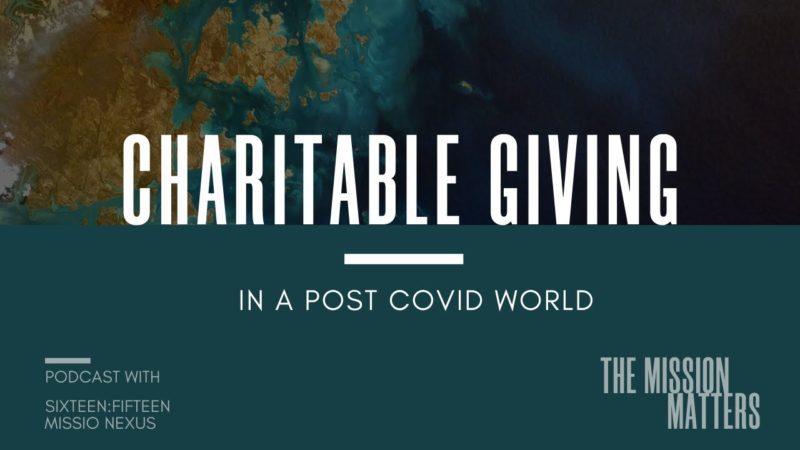Conflict Resolution in the Context of Love

by Iris Lowder
A conflict had been brewing on our team.
There was a woman who had an edge about her. She was gifted and hard-working but would often make comments like, “Why did you say that? You shouldn’t have done it that way. You just need to…,” all in a corrective, condescending tone.
People had pushed her away, arranging social outings to exclude her. Smaller groups worked on projects without her knowledge, not giving her a chance to have input. When she was around, the rest of us became less honest and transparent. If someone was struggling, she would be the last to know. Some were superficially polite, with a subtle aggressive message underneath. Not understanding this, she grew more and more hurt. The unity on our team was fracturing.
Finally, in one meeting she exploded. She pointed out how she was being treated and told everyone how wrong it was. She demanded an explanation! Someone made a weak attempt at apologizing, but it sounded forced. The tension in the room was thick. I don’t remember exactly how we ended our meeting that day but we eventually found a way to love her and each other through it. I tell that story below.
Conflict happens.
It can become as intense in ministry as anywhere and when the conflict occurs when we are already experiencing high levels of cross-cultural stress, it can become explosive. As I coach and counsel those in ministry, I am often struck by how surprised people are when there is conflict and how confused they are at the intensity of their own responses. One man said, “I worked in the business world for twelve years and never experienced this kind of conflict!”
A number of years ago I started an unusual women’s group. Our exclusive goal was to study and practice the art of loving one another well. Over the months, as our level of communication deepened and our comfort level with each other grew, it became easier both to laugh and to cry together. I once mentioned to a mentor how close we had become.
He surprised me by saying “No, you’re not close yet. Laughter and tears are the easy part. You will know you’re close when you can be angry and have conflict without disengaging or running away.” Our group eventually got there, but not without some struggles along the way.
Our goal is not to eliminate conflict.
Jesus’ life was full of conflict—even at times conflict that he seemed to start. Knowing how to resolve conflict is certainly essential to decisions being made or getting anything accomplished when you are working with other people, but that should not be our highest goal.
Our highest goal in navigating conflict should be to love our neighbor as ourselves while preserving the unity of the Spirit in the body of Christ. Doing this well as far as it depends on us is a supernatural, powerful witness, which always bears fruit. Love never fails.
God’s Heart for Loving Relationship and Its Connection to Mission
Loving like he loves is central to our life’s purpose. Jesus described it as the greatest of the commandments in Luke 10:27. John 13:34–35 commands us to love one another the way he loved us, which would be a sign to others that we are his followers. Galatians 5:14 says it is the point of the entire law.
Without this kind of love, any gift we offer, any wisdom we have or any sacrifice we make in the end amounts to nothing. (1 Corinthians 13:1–3) “Nothing” is a very strong word. It doesn’t say, “Without love, our gifts won’t be as effective.” It says that without love our work is as annoying as a clanging cymbal and will profit nothing in the end.
Love is how we show God to the world. “No one has ever seen God, but when we love one another, God lives in us, and his love is made complete in us” (1 John 4:12–13 NIV). People gain a glimpse of God when we love well, and we help complete the work of grace.
When we worked in China there were only a few Christian families in our area. Mrs. Wang was a devout Buddhist who knew us all. Several of us had shared our faith with her, but she didn’t show interest for several years. After she came to faith, I asked her what changed her mind. With tears she said, “I saw how you Christians love each other. I knew there was something real and different here.”
Love is what Jesus prayed for us. Recently I looked again at the prayer of Jesus in John 17:23. “…May they be brought to complete unity to let the world know that you have sent me and have loved them even as you have loved me.”
It touches me that this was on the heart of Jesus even as he anticipated his own death. I want to be a part of that prayer being answered. The only way to have this kind of complete unity is to work through the conflict that comes our way. As much as I want to avoid conflict, his prayer motivates me.
In light of these truths, several insights seem to follow:
Loving each other well should be a priority. I wonder if it should be the thing we study the most and work at the hardest. Shouldn’t it be something we pray for every day?
We must be prepared to fight. If our love and unity is a reflection of God’s character, then this is where the Enemy will attack. I know the strong magnetic pull to hate, to nurse my resentment and bitterness, to demand my rights. Sometimes that force can feel like something from a science fiction movie.
We must be prepared to suffer. The reality is when Jesus loved, it lead him to the cross. God’s love is not a sappy, sentimental thing. To love like Jesus requires great courage and strength and sometimes leads to the “death” of self-centered ways in us. This sounds good in theory, but our selfish ways are very precious to us and the death of them, well … feels like death.
Once I was praying and asking God to give me a heart like his: “Lord, I want to be like you.” Later I was praying about a conflict and asking God for wisdom. I asked, “Lord, give me love for this person. I don’t know how I can love someone who so obviously doesn’t love me.”
Then I sensed these words, “If you love someone who doesn’t love you, you will be like me, because this is what I do—every day.”
We should be inspired to worship. There’s no greater time to identify with the suffering of Jesus on our behalf than when we are in the middle of a conflict. Before we take steps for resolution, it might be good to pause for a while in the middle of our pain, whether it is rage at the injustice, or disgust over the ignorance, or the way we have been belittled, bullied, ignored, or accused. Thank him for enduring this kind of pain for us. He didn’t have to put himself through it.
Know that many will benefit. Recently I saw a powerful story on CBS news. An African American man had been sent to prison for four years for a crime he didn’t commit because a white cop had framed him by falsifying evidence. He lost everything. The cop was eventually caught and served time himself.
The falsely accused man spoke of dreaming about getting out and hurting this man. But after they were both out of prison, circumstances brought them together to work at the same restaurant. Because of his Christian faith, the wronged man found a way to forgiveness and the two even developed a loving friendship. It brought me to tears.
The reporter asked the man who had been wronged, “Did you forgive him for his sake or for your sake?” He said, “I forgave him for our sake.” He motioned to all the people around the room and said, “And for our sake.” As I listened I found myself fighting back tears.
I wanted to shout this message first to myself and to every Christian worker who has been wronged and hurt in a conflict. Work toward forgiveness and love, not just for the sake of the offender, and not for your own sake. Do it for our sake. The ripple effects will reach the world.
That kind of love and reconciliation will only happen by his power. We need good technique or communication tips, but it won’t get us his kind of love. We need him. It is only him loving through us that can allow us to know when to be gentle, when to be fierce; when to correct, when to encourage; when to give distance and when to pursue; when to turn over the tables of the moneychangers, and when to be quiet and write in the dirt. He knows.
The End of the Story
I began by describing a conflict some years ago. I invited my friend to lunch to talk about the conflict on our team. I told her I could see how hurt and angry she was and admitted that I had not been a good friend on the team. I wanted to do that now.
In the group, she had asked for an explanation and if she wanted to hear it, I would offer my view. She asked me to go on, but after I told her the things that pushed people away, she was defensive. “When have I done this? Give me an example!” So, I gave her examples.
I’m sure she felt cornered. She unleashed her anger in an attack on me, “You think you are so perfect! You are selfish and manipulative!” I wanted to back away and end the conversation here, but for some reason this day, I had a genuine love and compassion for her.
I said, “You have brought up some important things about me, and I want to hear those. For now, let’s put them in the box about me and we will keep that box right over here at the side. I promise we will open that up again, but this part of the conversation is about you.
“I’m here because I care about you. I want you to be included and I want people to share more openly when you are around. My hope is that you have rich, deep relationships not only now, but for the rest of your life. So, I love you enough to have this hard conversation. If I didn’t, it would be so much easier to be talking about the weather right now.”
I went on to describe the goodness I saw in her. I knew a bit of her story, so I wondered with her about how the hard edge could have formed in her personality. It made sense in her story to relate in these ways. It got her what she needed.

I dreamed with her about what it would look like to lay down some of those old ways she had learned and to live in a way that was more vulnerable. It would be frightening, for sure, but it would be authentic. She might need Jesus more! She softened and there were tears. She thanked me and told me she could tell that I cared.
After a while, I reminded her of the imaginary box with the comments about me. She said, “Oh no. It’s really nothing. I was just angry.” But I insisted. I said, “We can help each other grow. I know there are things I need to learn as well. You said I was manipulative. Let’s start there.”
She brought up an email I had sent to the team and explained her reaction. I could see how I had been more manipulative than honest, and I promised to think about it more. I learned something about myself that day, and we talked about how we need each other. We laughed about how you can’t see the broccoli in your own teeth!
Later, she wrote me a note that said I was the best friend she had ever had. Together we shared our conversation with the team which impacted the way we worked together after that. One small victory won.
I love imagining how it must have been to be with Jesus when he walked on earth. John wrote that he was full of grace and truth. People were sometimes stunned by the boldness of His grace. Other times the truth he spoke was hard to handle. What would it have been like to look in those eyes that were full of both?
If we see him clearly and soak in that grace and truth ourselves, we will reflect the same grace and truth to the people around us.
It’s not easy—in fact, impossible apart from the Spirit’s work, but it makes a difference. My prayer is that we will get better and better at loving his way because one day we will be looking right into that face and he will be looking back into ours. It would be so amazing if we could hear him say, “Well done, good and faithful servant. You loved well.”
Iris Lowder is a Member Development Consultant for Pioneers. She holds a BA and MACE from Dallas Theological Seminary.
» Add link to CBS News video.







